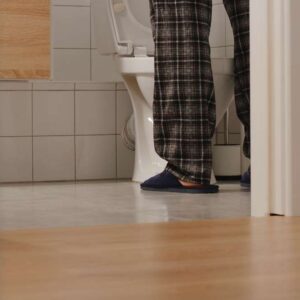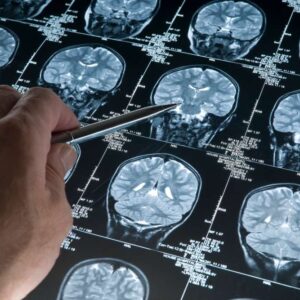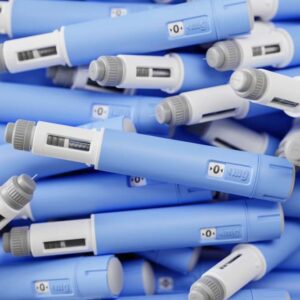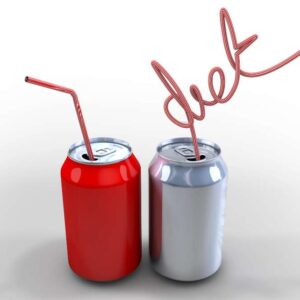
"Bright Idea" Battles Dementia WITHOUT Drugs
Mainstream medicine giving the thumbs up to a drug-free, non-invasive treatment for ANYTHING is like spotting a unicorn.
But that’s precisely what’s happened with dementia.
You probably already know how poor the options are for treating this disease.
Heck, even the MOST enthusiastic supporter of drug therapies will admit the existing Alzheimer’s meds are a flop. They might help someone live a few extra months and maybe help ease a few symptoms at best.
And those are the “GOOD” options. On the other hand, some dementia meds they’ve pushed have been downright dangerous.
Like the cholinesterase inhibitors from a few years ago that increase your risk of developing rhabdomyolysis (a rare disorder that breaks down muscle tissue), threatens your kidneys, and causes SEVERE PAIN.
Fortunately, there’s a better (FAR less risky) way to treat dementia symptoms.
It turns out harnessing the healing power of light can help dementia patients.
Phototherapy (sometimes called bright light therapy) uses controlled exposure to full-spectrum bright light (usually >600 lux) or wavelength-specific light (blue or blue-green light) to treat a variety of medical disorders.
It’s cheap, safe, and often very effective. In fact, if you’re a regular Living Well Daily reader, you may recall I’ve written before about using various forms of light therapy to improve depression and sleep and to ease aches and pains.
Now a new meta-analysis combining the data from several other studies confirms that people with dementia who got phototherapy performed SIGNIFICANTLY better on memory tests than those who got regular care.
The researchers behind the new study believe that light therapy helps dementia patients reset their internal clock (circadian rhythm) so they sleep better. And this can lead to measurable improvements in cognitive function.
You see, we already know that folks with dementia often battle circadian dysfunction. This means the internal clock that governs their sleep-wake cycle stops functioning correctly.
As a result, they don’t get the proper rest they need which hits the fast-forward button on memory loss.
But when the researchers took a deeper dive into the data, they found that phototherapy was linked to significant IMPROVEMENTS in cognitive function. Plus, agitation symptoms (a common issue with dementia) were improved after therapy sessions.
You don’t have to be battling dementia to benefit from phototherapy. Most of us spend the majority of our time indoors and aren’t exposed to nearly enough natural sunlight.
This can lead to sleep problems because our bodies get clues about when to be awake sleep from the quality and duration of the light we’re exposed to.
There are many ways to try light therapy. You can buy special light bulbs, light boxes, goggles, glasses, and headsets that provide the exact wavelengths you need. Most people use them daily for 30 minutes.
Phototherapy is an easy way to keep your circadian rhythm on track. And the evidence is building that it may reduce your risk of dementia too.
And another thing…
Here’s what else we’ve been chatting about this week in Living Well Daily…
Evade Dementia with a VITAMIN?! Study says, “YES!”
Fading brain power means losing your memories, your identity, and eventually your freedom. Don’t take that chance. Researchers have uncovered a remarkable, all-natural solution to SLASH your risk of developing dementia.
“One and Done” Thinking Boosts THIS Deadly Risk
Regardless if you’re an average Joe or a bit of an athlete, THIS common habit could send your risk for a deadly blood clot SOARING up to 35%.
Pleasant Pick-Me-Up Supports Gut Balance
Your gut bacteria are like a little community of tiny workers. Each bug has its own job to do. The problem is some of those bugs are working against you, HARMING your health. But new research just revealed an unexpected (and delicious) tool that can help you restore diversity and balance to your gut.
Dementia Test Raises Red Flags YEARS Earlier?!
Forgetfulness is seldom the first sign of losing your mind. But without an easy way to KNOW if your brain is firing on all cylinders, it’s only natural to worry and try to fill in the blanks on your own. Now you don’t have to. Try THIS test.
MAILBAG: Recover from Surgery FASTER
Surgery is stressful for the body (and mind). And it takes time to heal. But your recovery time CAN typically be reduced with a little extra support. Try these recovery hacks.
Snoring Could Give You DEMENTIA?!
Snoring isn’t pleasant for the snorer OR their partner, who may be forced to sleep with a pillow over their head to get some zzzs. But snoring is much more than just a pain in the ear. It could be a sign of something serious.
Trouble Focusing? The Likely Cause (and FIX)
If you’re like a LOT of folks, you find yourself continually distracted these days. I’ve got some tricks to help you reclaim your focus RIGHT HERE.
P.S. Battling lower back pain? It turns out “GOING GREEN” could be the safe and effective solution you’ve been looking for. But not in the way you might imagine.
Source:
“Phototherapy improves cognitive function in dementia: A systematic review and meta-analysis,” Brain and Behavior, First published: 05 April 2023, https://doi.org/10.1002/brb3.2952
Written By Dr. Scott Olson, ND
Nearly 25 years ago, failed mainstream medical treatments left Dr. Olson in constant pain – and his health in ruins. And that’s when he did something REVOLUTIONARY. He began his career in medicine – and dedicated his life to uncovering the true, underlying causes of disease.
Through his innovative medical practices in Tennessee and Colorado, Dr. Olson has helped cure countless seniors from across America of arthritis… heart disease… diabetes… and even cancer. All without risky prescription drugs or painful surgeries.
View More Free Articles
Mailbag: End Midnight Bathroom Runs with These 6 Natural Fixes
“Thank you for your Living Well Daily newsletter! Can you please share any thoughts on how to support prostate health? Especially getting up and going to the bathroom twice a night. The stream is not as strong as it once was; it takes longer to empty. Thanks!” —Night Shift Hi Shift, Thank you for being...
Coffee Flips Your “Longevity Switch?”
The rich aroma fills your kitchen, steam rises from the top as you pour, and as you wrap your hands around the mug to take a sip, it gently warms your hands. Then comes that moment when the caffeine kicks in—suddenly, the world snaps into focus. If you’re like me, the day doesn’t officially begin...
Build a “Memory Savings Account” with This Daily Habit
Remember when you used to make fun of your parents for not remembering things—like the name of an actor? Well, joke’s on us. Now we’re the ones googling names mid-conversation because we can’t remember if he was in that Christmas movie “where things blow up,” or the other one “where the ship sank.” But before...
The Brain Secret That DEFIES Aging
We’ve all heard the bad news when it comes to brain aging—shrinking volume, fading memory, slower reaction times. But new research from the German Center for Neurodegenerative Diseases (DZNE) delivers an unexpected—and uplifting—twist. Parts of your brain don’t just resist the aging process… they can actually get stronger. Let’s take a closer look… In a...
The Simple Secret to Better Health (No Gym Membership Required)
Let’s be honest—fitness culture is downright exhausting. You’ve probably encountered those ultra-dedicated exercise enthusiasts who turn every conversation into a masterclass on extreme workouts. They’re the ones posting their 5 AM CrossFit sessions and talking about their latest “beast mode” routine. And hey, good for them! But here’s the thing—you don’t need to become a...
Could This Gut Bug Outperform Ozempic?
Unless you’ve been living under a rock you’ve likely heard of Ozempic and similar GLP-1 drugs. They’ve been making headlines for their ability to help with blood sugar control—and, in many cases, weight loss. If you’re overweight or diabetic you may have even considered taking a GLP-1. But these drugs aren’t perfect. They can be...
Mailbag: 5 Tips to Dodge the Fall COVID Spike
“COVID is spreading through my family like wildfire. We’re thinking it’s the latest variant. Are there any new recommendations for protecting yourself against it? My spouse and I have tested negative so far, but we want do everything we can to dodge it this time around.” –Dodging Variants Hi Dodging, The “Nimbus” variant (NB.1.8.1) has...
Childhood Pastime “Rewires” the Parkinson’s Brain?
If you or someone you love is living with Parkinson’s disease, you know how relentless it can be. The stiffness. The tremors. The way even small, everyday tasks—buttoning a shirt, pouring a cup of coffee—can feel like a battle. It’s more than just the physical symptoms, too. Parkinson’s changes the way the brain communicates with...
The Sweet Deception Raising Your Diabetes Risk
You’ve probably seen the commercials… A trim person cracks open a can of diet soda and smiles about the healthy choice they’ve made. After all, no sugar, no calories—what’s not to like? But according to a new study, that seemingly “smart” swap might be quietly sabotaging your health. Researchers from Australia and the Netherlands have...
The Dirty Truth Lurking in Your Laundry Basket
If you’ve ever peeled off a pair of socks after a long summer day and caught a whiff of something foul… you’re not imagining things. That smell? It’s not just sweat. It’s the result of a full-blown microbial party happening between your toes. And for seniors—especially those with diabetes or compromised immune systems—this isn’t just...









